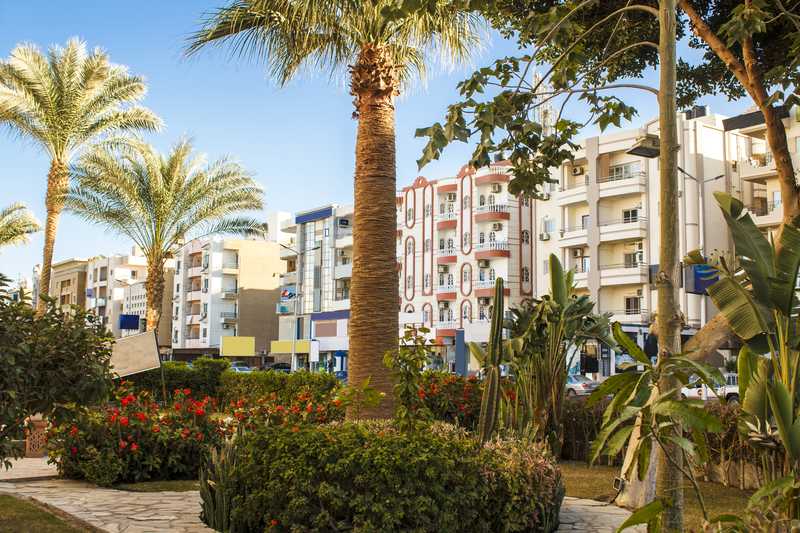What taxes apply to russian property owners in Hurghada?

Understanding the tax obligations for russian property owners in Hurghada
If you own property in Hurghada, Egypt, and are a Russian national, understanding the tax requirements tied to your real estate is crucial. Navigating foreign tax systems can seem complex, but knowing your obligations helps avoid legal pitfalls and ensures smooth management of your investment. This article breaks down the main taxes you will encounter as a property owner in Hurghada, focusing on local Egyptian tax rules that apply to foreign investors, specifically Russian property owners.
Types of taxes applicable to property in Hurghada
Several taxes apply to property owners in Hurghada, which you should be aware of from the moment you finalize the purchase:
- Real Estate Tax (Property Tax): This is an annual tax levied on the ownership of property in Egypt. It applies to residential, commercial, and land properties. As a Russian investing in Hurghada, you will be subject to this tax based on the assessed value of your property.
- Stamp Duty: When purchasing property, you are required to pay a stamp duty, which is a one-time tax on the transaction value.
- Capital Gains Tax: If you sell your property later, you may be liable for capital gains tax on the profit arising from the sale. This tax can impact investment decisions, so it’s important to factor this into your planning.
- Income Tax on Rental Earnings: If you rent out your property, the rental income is subject to Egyptian income tax. This tax must be declared, and appropriate filings made.
Understanding real estate tax obligations
The real estate tax in Egypt is calculated on the market value of your property. It is important to note that the Egyptian government periodically re-evaluates property values to adjust tax amounts. As a foreign owner, you must ensure timely payment to avoid penalties or legal action.
Currently, the tax rate on property in Egypt can vary but typically ranges within a low percentage of the property’s value, making it relatively affordable compared to some other countries. The tax is paid annually, usually to the local tax authority in Hurghada.
Stamp duty when acquiring property
When you finalize a purchase, a stamp duty tax must be paid. This tax rate is typically around 2.5% of the property’s transaction value, but it can range depending on the specifics of the sale and property type. The duty must be settled immediately or shortly after the sale contract is signed and registered with the government. Your real estate agent or lawyer usually assists with this process.
Capital gains tax considerations for sellers
If you plan to sell your property in Hurghada, capital gains tax is an important consideration. Egyptian tax law requires that any profit from selling property is subject to a capital gains tax. The rate can vary but often is set at 10% of the gain. You calculate this by subtracting the original purchase price from the selling price, excluding allowable deductions such as transaction fees.
Since you are a Russian citizen, double taxation treaties between Egypt and Russia may affect your tax liabilities, possibly allowing for tax credits on taxes paid abroad. Consulting with a tax professional familiar with both jurisdictions is advisable to prevent double taxation and optimize your tax position.
Income tax on rental properties
Many Russian investors choose to rent their properties in Hurghada. Rental income is taxable in Egypt at a progressive rate, depending on the revenue earned. You must declare rental income and pay tax accordingly. Landlords often withhold a part of the rent as tax in advance, which is later reconciled with annual tax returns.
Being compliant with rental income taxation not only keeps your investment legitimate but also facilitates legal recourse in case of disputes or evictions.
Important tips for russian property owners in Hurghada
- Keep thorough records: Maintain all paperwork related to purchase, ownership, rental income, and sale transactions to ensure accurate tax filings.
- Consult local tax experts: Egyptian tax laws can be intricate, and professional advice ensures compliance and optimization.
- Stay informed about tax updates: Regulations can change. Keeping yourself updated will help avoid surprises.
- Utilize double taxation agreements: Russia and Egypt have agreements to prevent being taxed twice. Understanding these treaties can save you money.
- Pay taxes on time: Meet all deadlines for payments to avoid penalties and interest charges.
Owning property in Hurghada as a Russian comes with specific tax responsibilities under Egyptian law. From annual property taxes to one-time stamp duties and potential capital gains and rental income taxes, understanding these obligations ensures you can enjoy your investment with confidence and security. Taking proactive steps to comply with tax rules protects your investment and helps maintain good standing with local authorities.
Navigating double taxation treaties between russia and egypt for property investors
If you are a Russian property investor owning real estate in Egypt, particularly in popular destinations like Hurghada, understanding how double taxation treaties work between Russia and Egypt is essential. Navigating these tax agreements can significantly impact your financial planning and help you avoid paying tax twice on the same income or asset. This guide clarifies how these treaties affect your tax obligations and what steps you should take to optimize your investment.
Overview of double taxation treaties
A double taxation treaty (DTT) is a bilateral agreement between two countries designed to prevent individuals and businesses from being taxed on the same income in both jurisdictions. For Russian investors with property in Egypt, the treaty between Russia and Egypt aims to allocate taxing rights fairly, ensuring that income from property ownership is taxed only once or that any double taxation is relieved through credits or exemptions.
Given that rental income and capital gains from Egyptian real estate can be taxed by Egypt, while Russia might also consider applying tax rules to global income of its residents, the DTT clarifies which country has the primary right to impose taxes and how to handle any potential conflicts.
How income from property is taxed
For property owners, there are two main income types to consider under cross-border taxation:
- Rental Income: If you lease out your Egyptian property, the rental income is generally taxable in Egypt because the income arises from property located there. The double taxation treaty usually gives Egypt the right to tax this income first.
- Capital Gains: Any profit made from the sale of the property also tends to be taxable in Egypt, as the capital gain is linked to a local asset.
Russia may also tax you on your worldwide income, including rental income and capital gains earned abroad. However, under the treaty, Russian tax authorities typically allow a credit for the Egyptian tax paid to prevent double taxation.
Specific provisions in the russia-egypt dtt
The Russia-Egypt double taxation agreement outlines several key points important for property investors:
- Exclusive Taxation Rights for Real Property Income: Income from real estate located in Egypt is taxable in Egypt. This includes rental income and capital gains related to the property.
- Tax Credit Mechanism: Russia permits Russian residents to offset the tax they have already paid in Egypt against what is owed in Russia up to the amount of Russian tax attributable to that income.
- Reduced Withholding Taxes: Dividends, interest, and royalties arising in Egypt and paid to residents in Russia may benefit from reduced withholding tax rates, but this is usually less relevant for property investors unless income structures are complex.
Key taxes to consider for property owners in Hurghada
When it comes to actual taxation in Egypt, Russian property owners should be aware of these relevant taxes:
- Real Estate Tax: Egypt imposes an annual real estate tax on properties. This tax is based on estimated rental value and is payable to Egyptian authorities.
- Income Tax on Rental Earnings: Rental income is subject to Egyptian income tax. Rates vary depending on the amount and other factors. Proper documentation and declaring your rental income are necessary to comply with local laws.
- Capital Gains Tax: When selling property, capital gains tax might apply. While rates can differ, Egypt generally taxes the net gain from such sales.
Practical advice for russian property investors
To make the most of the double taxation treaty and stay compliant:
- Maintain Proper Records: Keep detailed documentation of all rental income, expenses, and taxes paid in Egypt. This paperwork is essential when applying for tax credits in Russia.
- Declare Your Foreign Income: As a Russian tax resident, you must declare your global income, including income from Egyptian properties, on your Russian tax return.
- Understand Local Tax Deadlines: Meeting Egyptian tax filing deadlines helps avoid penalties and ensures all due taxes are paid on time.
- Seek Expert Tax Advice: Cross-border taxation can be complex. Consulting a professional experienced with Russian and Egyptian tax laws will help you navigate obligations and utilize treaty benefits efficiently.
- Regularly Review Tax Rules: Tax laws and treaty provisions can evolve. Staying informed about any updates ensures continued compliance and optimized tax planning.
By leveraging the double taxation treaty between Russia and Egypt effectively, Russian investors can avoid being taxed twice and enhance the financial sustainability of their property investments in Hurghada. Understanding how rental income and capital gains are treated in both countries can save significant sums and reduce complications.
Summary of key points
For Russian property owners in Hurghada, grasping the full scope of tax responsibilities is essential to manage investments wisely and avoid unexpected liabilities. Egypt’s tax system includes property taxes and potential income taxes on rental earnings, which you must consider when owning real estate there. Being aware of these obligations helps you stay compliant with local laws and maintain smooth property management.
Moreover, the existence of double taxation treaties between Russia and Egypt offers significant benefits, preventing you from being taxed twice on the same income. These treaties create clarity about which country has the taxing rights and often provide avenues to claim tax credits. Understanding how these treaties work can reduce your overall tax burden and simplify your financial planning.
By keeping these factors in mind, you can confidently navigate the complexities of owning property abroad. Staying informed about local tax requirements and leveraging international agreements ensures that your investment in Hurghada remains both profitable and legally sound. Always consider consulting with specialized tax professionals who understand the nuances of Russian-Egyptian tax relations to maximize your benefits and minimize risks. This strategic approach will empower you to manage your Hurghada property effectively while staying compliant with both countries’ tax laws.










